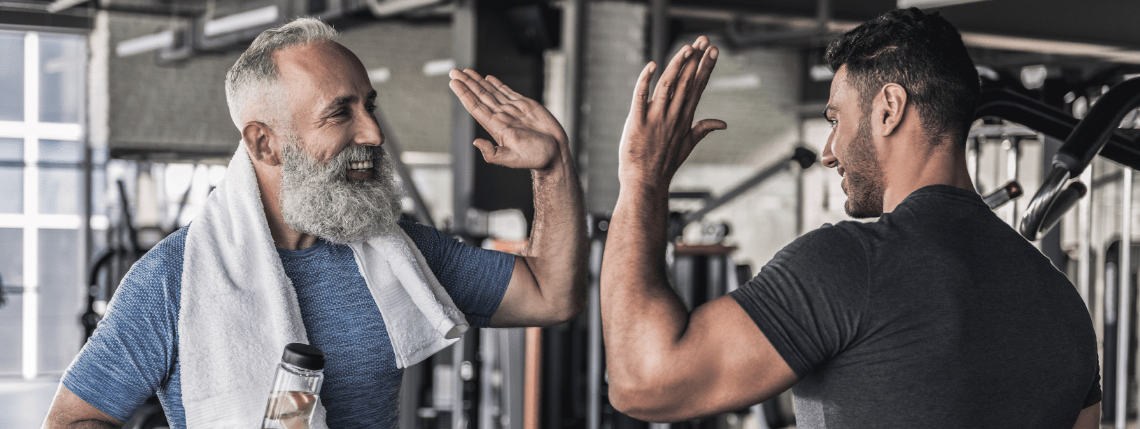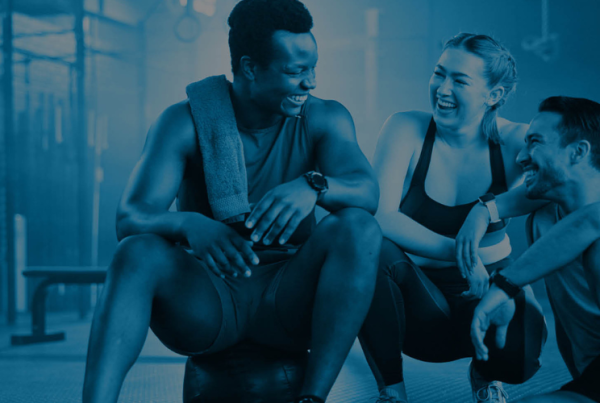In Antony Stewart latest blog, he explores the phenomenon, the Placebo effect. He looks at how positive messaging can influence a fitness-related experience or outcome.
A placebo occurs where belief, language and cultural expectations are enough to cause a positive mental or physical effect.
Scientists regularly use Placebo sugar-pills in randomised control trials, as a way of comparing a treatment with an alternative without the ingredient.
Over many years and thousands of experiments, it has turned out that there are many occasions where sugar-pills have been beneficial in improving both symptoms and outcomes in patients.
Placebos have been found to be effective in the treatment of depression, rheumatism, back pain, erectile dysfunction and acne.
Sham (pretend) injections turn out to be even more effective than pills. Capsules are also found to be better than tablets!
If the person prescribing the treatment is a respected individual in a white coat, the treatment tends to be even more successful. Especially if the person believes wholeheartedly in the treatment, an emotion they either voluntarily or involuntarily share with the patient.
What could this mean for the fitness industry?
In a study, two groups of hotel cleaners in the USA were measured for their weight, body fat, body mass index, waist-to-hip ratio and blood pressure.
One group was then given a detailed presentation about the benefits of the physical nature of their work. This included detailed information about the number of calories burnt per task. They were told that they worked much harder than both the government recommended guidelines and the average American.
A second group was the control and they were given no education, advice or treatment at all.
Both groups then continued their work for another month, with the scientists monitoring their energy expenditure throughout.
Neither group increased their activity levels during this period but, when measured, the group that had seen the detailed presentation had improved their scores on every single one of the physical measurements.
It seemed, therefore, that by having a greater understanding and belief in the benefit of day-to-day working activities, it was possible to see a positive physical outcome.
These exciting experiments could be hugely beneficial for the fitness industry in lots of different ways.
The first opportunity that springs to mind is around education. Exercise dose seems like it will work best if it is accompanied by initial and ongoing education. This could be arranged on a formal and/or informal basis within a club or digital space.
It could take the form of communications that are programmed to appear within the app or website, or that are available to be seen on posters and TV screens.
The second opportunity is for fitness professionals. They should not be wary of predicting great results, assuming adherence is maintained. They should measure biometric stats at the start, regularly and consistently, then highlight and celebrate success as early as possible.
We certainly need to avoid the Nocebo traps, mentioned in my last blog, such as the (sometimes) negative language of exercise. We also need to stop criticising physical movement that doesn’t fit the criteria of our personal way of doing fitness.
If every workout is rubbish apart from the one you do with your PT, then where does that leave your confidence in fitness and the industry as a whole? This common fitness-industry attitude can potentially negate and reverse any Placebo benefit.
Interestingly, the most important psychological aspect of this phenomenon comes from belief and trust in the prescriber.
Placebo will work best when the client trusts the professional. Our fitness experts need to completely believe in the product they are promoting, otherwise the phenomenon will be diluted.
Time also needs to be taken to make the environment as professional and health orientated as possible, without being too clinical.
So, in conclusion, we now know that belief can affect outcomes for clients. As an industry, we also have long been convinced that results improve retention and that low attrition equates to profit!
It is certainly, therefore, worth considering investment in more detailed inductions, biometric assessments and communication of knowledge at the start of a client relationship.
The next and more difficult challenge is to maintain that educational relationship with a large number of members over time.
One final quick win is to ensure you have authenticity within your teams, encouraging belief, participation and professionalism around fitness throughout the club.
Further reading
Using the placebo effect for your health – Leiden University (universiteitleiden.nl)
Is the benefit of exercise a placebo effect? – Research Digest (bps.org.uk)
Where to next? read Antony’s blog on the nocebo effect
Author bio

Antony Stewart is head of group exercise for Third Space clubs, as well as a DJ and dance music producer who has created tracks for the fitness industry and internationally successful dance music compilation albums. Antony has enjoyed 20+ years in the fitness industry and also worked as a senior manager for both David Lloyd and Virgin Active.







